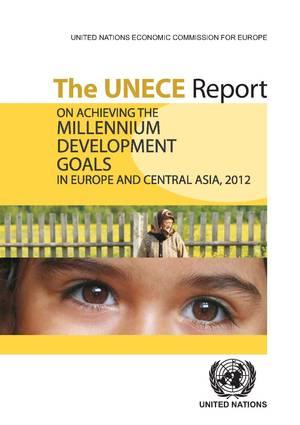Europe and the CIS
Europe and the CIS
March 28, 2016
This report documents the degree to which the eight goals based upon eighteen targets are on track to be fulfilled by 2015 in the Pan-European region. Generally the report finds that significant progress was being made in almost every area prior to the global financial crisis of 2008-2009, but the severe downturn during the crisis and sluggish recovery since 2009 has resulted in slower improvement. The crisis increased unemployment and poverty in much of the region and has significantly weakened government finances so that less is available for improving the educational and health infrastructure and in providing income maintenance for low income families. The deteriorating sovereign debt situation in the advanced economies has resulted in a scaling back of official development assistance which is desperately needed in much of the developing world to close the financing gap for achieving the targets. Unfortunately the economic outlook for the coming year for the UNECE region is quite subdued, and some of the goals may not be achieved without a more focused effort by our member States.
The report highlights that in the UNECE region poverty, hunger and lack of access to education and health care are not endemic to the general population as in much of the developing world, but are increasingly confined to marginalized groups including ethnic minorities, indigenous peoples and migrants, persons with disabilities, the long-term unemployed, and in a few cases, women and girls more generally. Thus government policy should concentrate on creating more equitable societies with better designed policies for reaching these disadvantaged groups. There are some targets, especially in the environmental area, however, where the lack of progress is more widespread and there is a need for changes in policy and economy-wide activities; some of these goals remain unfulfilled even in the region’s advanced economies.
The report concludes with two special chapters that examine in more detail some specific aspects related to the MDGs. The first deals with data issues; being able to accurately quantify targets is central to their analysis and to formulating policy recommendations. The second deals with population ageing in the region’s emerging economies and its implications for the fiscal sustainability of social insurance systems; this presents a significant long-term challenge for the economic development of these economies

 Locations
Locations





